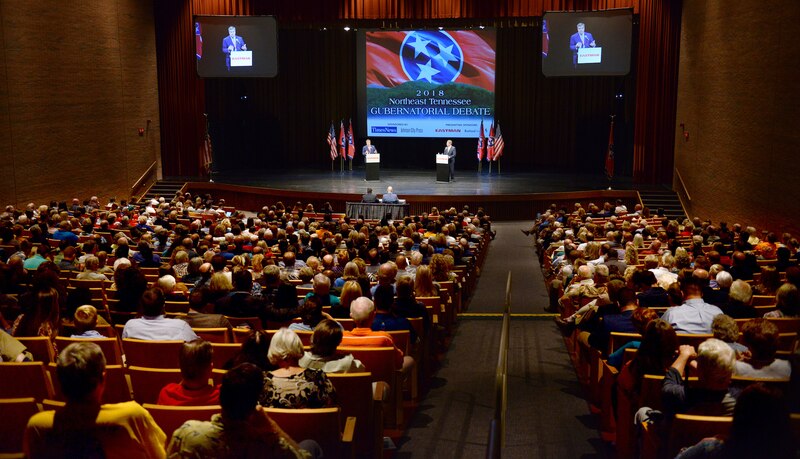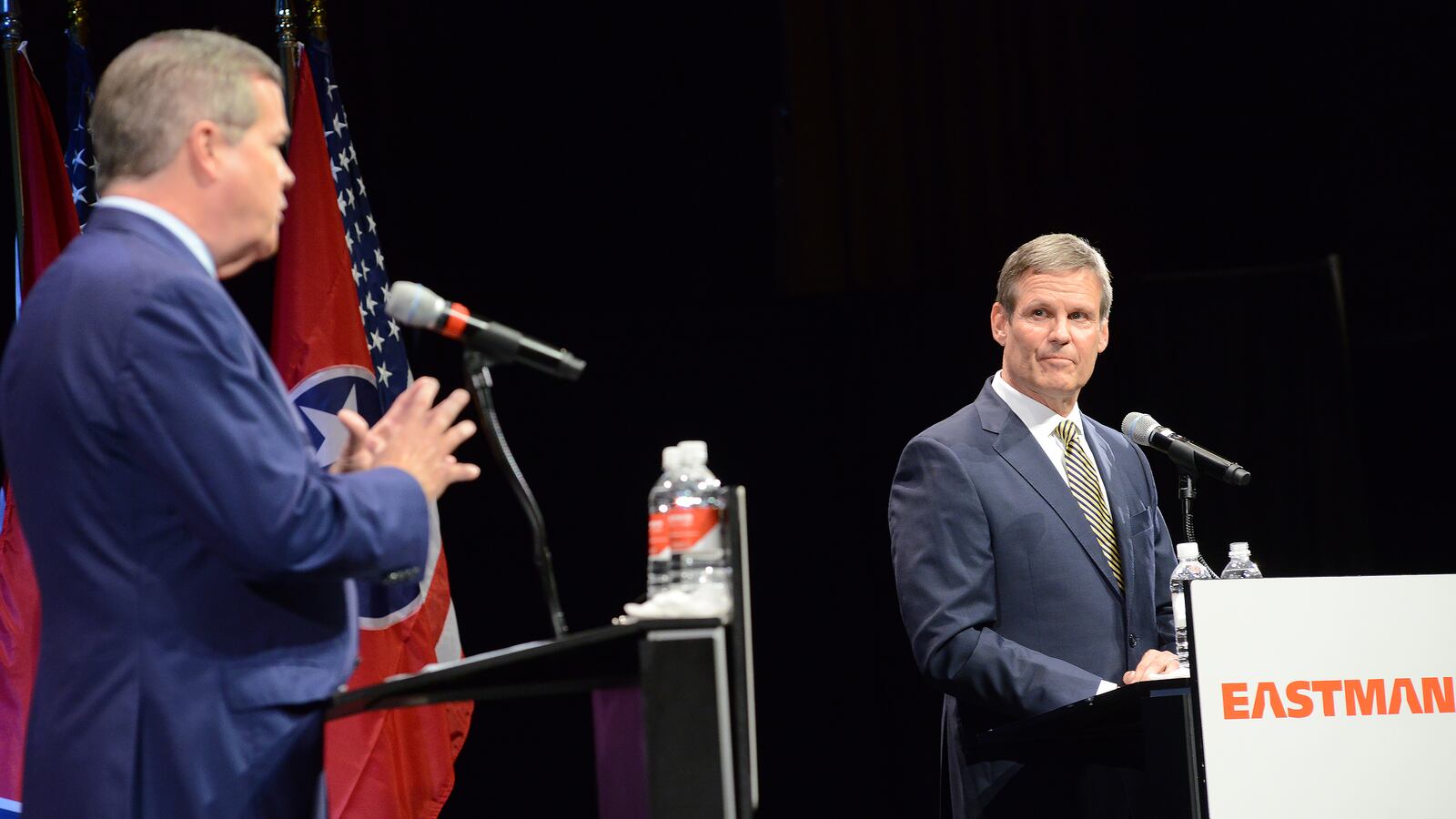While the first two debates have been polite and cordial between Democrat Karl Dean and Republican Bill Lee, sharp differences are emerging on hot-button education issues in the race to be Tennessee’s next governor.
The successor to Republican Gov. Bill Haslam will have the chance to shape the state’s policies for K-12 public schools in significant ways. Voters have told pollsters that education will be one of their top priorities when they cast their ballots on Nov. 6.
Both candidates agree on the need to make teacher pay more competitive — and to take closer looks at the state’s troubled testing program and the state-run district for improving low-performing schools.
But as they prepare for their final televised debate on Friday evening in Nashville, the candidates clearly don’t agree on three significant issues. The positions are based on what Dean, a lawyer and former mayor of Nashville, and Lee, a businessman and farmer from Williamson County, have said during their first two faceoffs, as well as on candidate surveys.
1. Using public dollars for private schools
The use of taxpayer-funded vouchers to pay for private school tuition has been debated for more than a decade in the legislature, but such proposals have been consistently fended off by a bipartisan coalition of Democrats and rural Republicans.
The current governor said he’d sign voucher legislation if lawmakers passed it, but they never did and he didn’t champion the policy shift as research showed mixed results on the impact of vouchers on students.
That climate could change if Lee becomes governor. A graduate of public schools who sent his children to a mix of public, private, and home schools, the Republican nominee has praised policies that give parents more school choices for their kids. Lee has said that vouchers have potential, but he has sidestepped specific questions about such programs.
Dean has seized on the voucher issue as a pivotal difference between him and his opponent and this week released a TV ad suggesting that the policy would undermine public education.
“Funding has always been an issue, but we should do nothing to take away from the strength of public education,” Dean said during their second debate in Kingsport.
He went on to talk about his support for nonprofit charter schools as mayor of Nashville from 2007 to 2015, but characterized vouchers as a different animal altogether.
“I have the scars on my back from my work in education reform,” Dean said, “but I do not believe in vouchers because vouchers actually take public dollars and put them into a private education system.”
2. Expanding early childhood education access
Both candidates want to improve the quality of publicly funded preschool programs across Tennessee, but have a different timetable for expanding access beyond the state’s lower-income families.
Dean advocates for universal pre-K programs, while Lee is cool to that idea.
“I’m always the guy who believes that government is not the answer,” Lee said during their first debate in Memphis.
Dean said investing more dollars in early childhood education makes sense if education is the No. 1 priority in a state that wants to prepare all children for success in the classroom and ultimately the future of work.
“That would be something that I would try to fund as quickly as I could,” Dean said of universal pre-K.
But Lee says that approach is premature in light of a landmark five-year study released in 2015 by Vanderbilt University. Researchers found that, while helpful in the early years, participating in the state’s public programs could actually negatively impact students as they advance through school — a shocking finding that ignited new efforts to step up pre-K quality across Tennessee.
“I believe we owe it to taxpayers and parents to focus first on how we can improve quality to ensure that any gains are sustainable,” Lee told Chalkbeat earlier this year. “That begins by working with our state universities and colleges of education to ensure they are driving quality training for early childhood educators, while at the same time working with local education agencies to set goals for improvement and identify best practices across the state.”
3. Arming educators in schools
A proposal to give some teachers handguns and train them on firearms fizzled this year in the legislature under opposition from the current governor, who instead spearheaded additional investments in school security.
But Lee, who has been endorsed by Haslam, thinks that arming teachers could help prevent mass school shootings like the one that killed 17 people in Parkland, Florida, last February.
“We protect our banks with guns, we protect our judges, we even protect our governor. But we leave our children defenseless in gun-free zones,” Lee says on his campaign website. “We should absolutely allow a qualified and vetted teacher to make the choice to be a part of the solution.”
Dean believes that arming teachers would be a big mistake.
“Putting guns in the classroom would create more problems and concerns,” said the former public defender. “The common sense approach would be to provide school districts with the resources they need for trained law enforcement and school resource officers. Of the hundreds of educators I’ve met during his time as mayor and on the campaign trail, the overwhelming consensus is that teachers want to teach. They do not want to be armed.”
Read our candidate surveys: Here’s what Dean and Lee say on public education
With less than a month to go until Election Day, polls show Lee with a solid lead over Dean in a state that leans mostly Republican.
The third debate is taking place on the campus of Belmont University and will be broadcast live beginning at 7 p.m. Central Time on Nexstar Media Group affiliates statewide.


